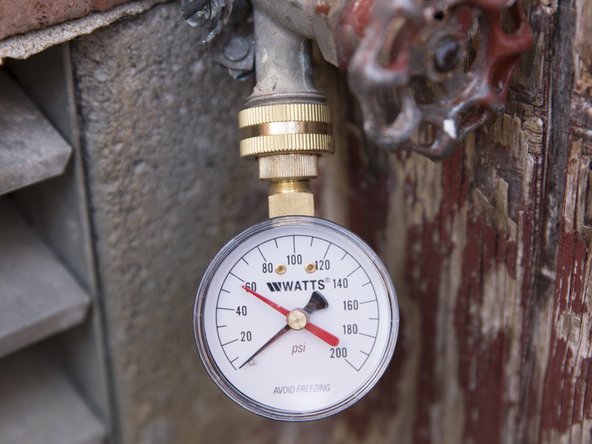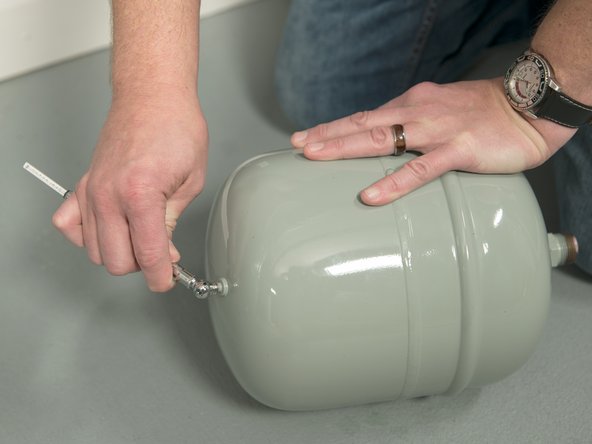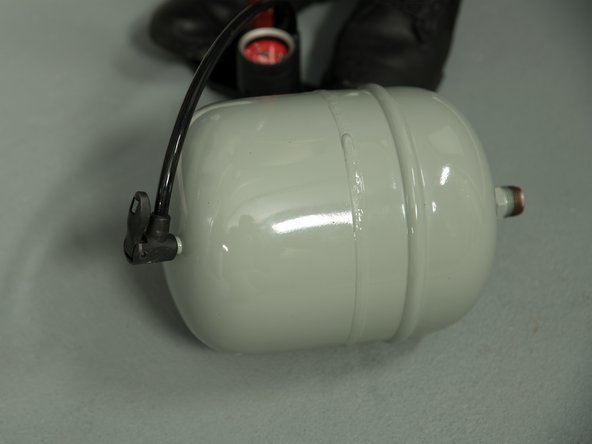Introduction
Water expands when heated. But water is not compressible.
The pressure increase caused by heating water in a closed tank can be quite large.
In years past, water heaters were installed on "open" plumbing systems which allowed the increased pressure to push back into the public water system.
To reduce pollution, most plumbing systems are now "closed." Today, when cold water in your water heater is heated and expands, it dramatically increases the pressure in your home's pipes which can damage your home's plumbing system.
Thermal expansion happens in your car, too. The water in your car's engine expands when heated. The expanded water is collected in an expansion tank or reservoir and is held until the engine cools down.
The information on this web site is supplemental to the printed instructions that came with your water heater. To reduce the risk of property damage, serious injury or death, read and follow all labels on the water heater and the safety instructions in the printed owner's manual.
-
-
Bicycle pump or air compressure
-
Tire pressure gauge
-
Water pressure gauge with a lazy hand
-
Pressure reducing valve
-
Thermal expansion tank
-
-
-
If your home's normal water pressure is 60 psi, thermal pressure caused by heating cold water can increase your home's water pressure to 120 psi or higher.
-
Temperature and Pressure Relief Valves often open slightly and drip due to thermal expansion.
-
Don't replace a dripping Temperature and Pressure Relief Valve until you've controlled your home's water pressure and installed a Thermal Expansion Tank.
-
-
-
High water pressure is one of the main reasons water heaters leak prematurely.
-
Plumbing codes require that your home's water pressure be 80 pounds per square inch (psi) or less. Most experts recommend 50-60 psi.
-
If your old water heater leaked prematurely, check your home's water pressure with a pressure gauge (available at hardware stores and home centers for a few dollars). Measure the water pressure over a 24-hour period. (Water pressures are highest at night.)
-
-
-
If the normal water pressure in your home is 80 psi or above, install a Pressure Reducing Valve.
-
See Checking Water Pressure for more information.
-
-
-
Measure your home's water pressure.
-
Run the hot water from a faucet for 2-3 minutes to force the water heater into operation.
-
Monitor the water pressure while the water heater is in a heating cycle.
-
-
-
If the pressure increases, your plumbing system is "closed" and your home needs a Thermal Expansion Tank.
-
If you already have a Thermal Expansion Tank, this test will determine if the expansion tank is working properly.
-
If you have an expansion tank and the pressure increases when the water heater is heating water, the expansion tank's rubber bladder may have failed, the tank may have the wrong air pressure, or it may be too small for your home.
-
-
-
Residential Thermal Expansion Tanks are available in 2 gallon and 5 gallon capacity. Larger water heaters require a larger expansion tank.
-
Expansion tanks come with a chart that will help you determine the size needed for your home. If in doubt, get the larger size.
-
Read and follow the installation instructions that come with the expansion tank.
-
-
-
Before installing an expansion tank, measure the tank's air pressure charge.
-
When taken from the box, the air pressure in the expansion tanks will likely be lower than your home's water pressure.
-
-
-
Add air to the expansion tank (using a bicycle pump or air compressor) until the air pressure in the tank matches the home's water pressure.
-
Make all necessary adjustments to the expansion tank's air pressure before installing the expansion tank.
-
-
-
Expansion tanks should be attached to the cold water pipe. Typically, expansion tanks are located near the water heater, but can be placed on a cold water pipe anywhere in the home if there are no valves in between.
-
-
-
The air pressure charge and the rubber bladder give the expanded water a place to go. This prevents the home's water pressure from increasing dramatically during a heating cycle.
-
This video explains how a Thermal Expansion Tank works.
-


















